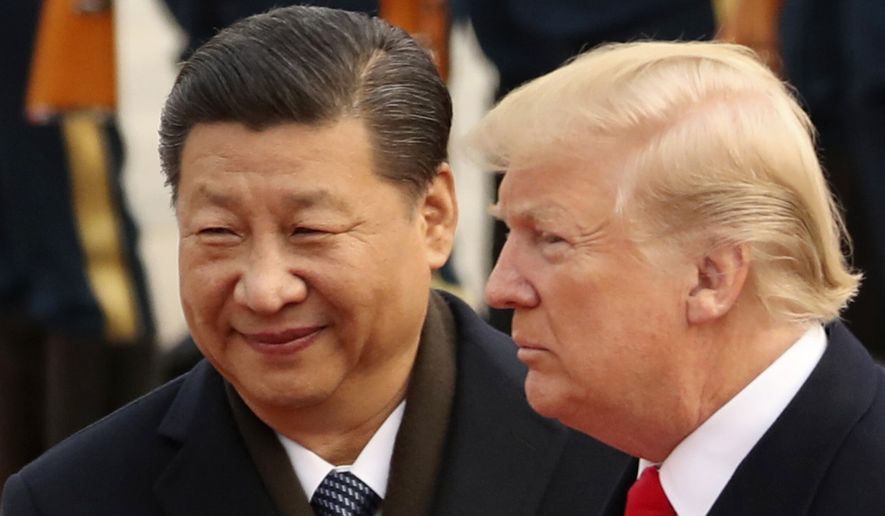President Trump on Friday said China’s economic woes show that his get-tough strategy is working and improving odds for a trade deal.
“China just announced that their economy is growing much slower than anticipated because of our Trade War with them. They have just suspended U.S. Tariff Hikes. U.S. is doing very well. China wants to make a big and very comprehensive deal. It could happen, and rather soon!” tweeted Mr. Trump.
China’s economy has been slowing and the trade war hasn’t helped.
Beijing has made several conciliatory gestures on the trade front, including lowing auto tariffs, since Mr. Trump and Chinese President Xi Jinping called a truce in the trade war Dec. 1.
However, there will have to be much hard bargaining to reach a trade deal before the March 1 deadline set by Mr. Trump.
China’s November retail sales grew at their weakest pace since 2003 and industrial output rose the least in nearly three years, as the country’s economy continued to lose momentum.
The slowdown stems from China cracking down on shadow lending but the trend has been accelerated by U.S. tariffs.
The Trump administration has been ratcheting up tariffs on China this year, first slapping a 10 percent tariff on $50 billion of Chinese goods and then another 10 percent on $200 billion.
At the Dec. 1 meeting with his Chinese counterpart, Mr. Trump delayed increasing the tariffs on $200 billion of goods to 25 percent until March to give time to make a deal.
Ms. Xi pledged to open China’s markets, buy more U.S. agriculture and other goods and reduce duties on cars.
Beijing has begun moving on several of these commitments. But negotiations continue on a trade pact that addresses Mr. Trump’s demands that China end abuses such as theft of intellectual property and forced transfer of technology form America companies doing business in China.
China has announced a 90-day suspension of tariff hikes on $126 billion of U.S. cars, trucks and auto parts following its cease-fire in a trade battle with Washington that threatens global economic growth.
The tax agency said the suspension that takes effect Jan. 1 is intended to carry out the agreement reached Dec. 1 by Mr. Trump and Mr. Xi, who made the breakthrough over a steak dinner in Buenos Aires, where they were attending the Group of 20 nations leaders summit.
The agency said Beijing will suspend a 25 percent import charge on $66 billion of cars and trucks and a 5 percent charge on $60 billion of auto parts.
• This article is based in part on wire service reports.
• S.A. Miller can be reached at smiller@washingtontimes.com.




Please read our comment policy before commenting.